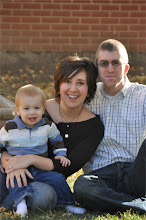You shouldn't be. You probably do it to. :)
Specifically I'm referring to my spouting off of seemingly educated information. Now, I certainly never misinform intentionally, but when it comes to something I'm passionate about I can tend to let my mouth get ahead of me by repeating things I've "heard" but don't necessarily know to be true.
My case in point: recently I told a good friend that "the worldwide average weaning age is 4 years old". If you read that, you may think it partially believable. After all, there are a TON of indigenous people groups who nurse children for quite a while. But stop and think for a moment what the word "average" means. This word imposes the assumption that there are an equal number of children weaned prior to four years as there are weaned after four years. Not only that, but it assumes that for every child weaned at 2, there is a child weaned at 6 - that 4-years is the "average" - the sum of ages divided by the quantity of babes.
After looking into this, (first, here in a post by breastfeeding blogger "the lactivist)" not only did I begin to find the "statistic" absurd, I also found educated breastfeeding proponents questioning its validity and source. Anthropologist Kathryne Dettwyler states the following in her paper titled "A Natural Age of Weaning"
"One often hears that the worldwide average age of weaning is 4.2 years, but this figure is neither accurate nor meaningful. A survey of 64 "traditional" studies done prior to the 1940s showed a median duration of breastfeeding of about 2.8 years, but with some societies breastfeeding for much shorter, and some for much longer. It is meaningless, statistically, to speak of an average age of weaning worldwide, as so many children never nurse at all, or their mothers give up in the first few days, or at six weeks when they go back to work. It is true that there are still many societies in the world where children are routinely breastfed until the age of four or five years or older, and even in the United States, some children are nursed for this long and longer. In societies where children are allowed to nurse "as long as they want" they usually self-wean, with no arguments or emotional trauma, between 3 and 4 years of age."
So, you see, it may be rather artificial to try to pinpoint a worldwide "average" age of weaning - whether mother led or child led. That said, we have a WEALTH of data from the Centers for Disease Control with which to determine weaning ages (or, more importantly, the average length of breastfeeding) of American Infants.
According to the CDC, nearly 74% of U.S. infants are nursed - at least once. Sometimes that's all it is - we really don't know. I can tell you from personal experience I was ready to take Similac up on their generous offers the day I left he hospital. Nursing is no picnic in the beginning. That aside, the CDC reports that at three months of age 33% of infants are still exclusively nursed (exclusively meaning without any formula used for supplementation).
[As an aside, Levi was not a part of that 33%. We had to give him some formula while I pumped because he was rapidly losing weight.]
That means that the remaining 67% must have either weaned, or been supplemented prior to 3 months of age.
By six months of age less than 14% are still breastfed exclusively - but this needs a little explanation. You see, the American Academy of Pediatrics recommends that infants be started on solid food NO SOONER than six months of age. But how many people follow that advice? I'd guess (and this is truly a guess) almost none. I know we didn't. We started at 5 1/2 months.
It must be mentioned however that the starting of solid food (whether it follows breastfeeding or formula feeding) marks the beginning of weaning - the time at which a baby begins slowly moving his focus from the breast/bottle to table foods. The CDC reported just over 43% of infants were "non-exclusively" breastfeeding at 6 months (i.e. taking formula and/or solids in addition to breast milk), meaning that 29% had been fully weaned from the breast by that time.
Almost 23% of U.S. infants still received breast milk at 12 months of age. Obviously, NONE "exclusively" breastfeed at this time, as all require solid food by now. This statistic tells us that 77% of infants have been fully weaned before one year.
The American Academy of Pediatrics and the Centers for Disease Control recommend mothers breastfeed for a minimum of one year, with the first six months being exclusive. The World Health Organization recommends a minimum of two years. A true average weaning age cannot be ascertained because the CDC keeps no records of infants who nurse well into toddlerhood, but this can be said: well over half of US infants are weaned prior to six months of age, and more than 3/4's are weaned before age one.
More than anything this post has been an opportunity for me to dig a little deeper and figure out what I should and should not be repeating. So, the next time I go spouting off information that sounds as though it might be "technical" or "statistical" in nature, you go right ahead and ask me for my source, because honestly I really shouldn't be spouting things off without one.

No comments:
Post a Comment